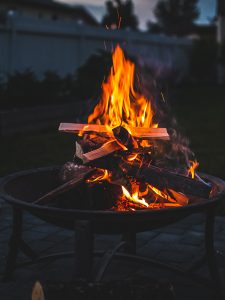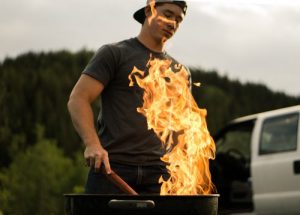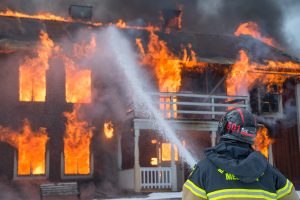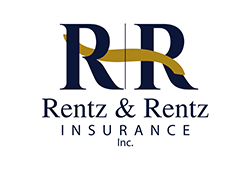From Trusted Choice
Your Grill Should Cook, Not Burn
… the barn. Or the house. Or a child.
Don’t Let this

Or this 
Turn In to this  .
.
Every year, what should be a fun outdoor occasion for family and friends instead turns into tragedy at nearly 9,000 homes, causing deaths, injuries and tens of millions in property damage. Your Trusted Choice® independent insurance agent Rentz & Rentz can remind you that fire damage and potential liability for injury to friends will be covered by your homeowners policy, but we’d much rather you sidle up to the picnic table than hunker down in the emergency room.
Gas grills represent the greatest risk by far, and are involved in more than 80% of all grilling fires. But all types of grills represent a danger if used incorrectly or carelessly. A few simple precautions, courtesy of the experts at the National Fire Protection Association (NFPA), may make the difference:
For all grills:
- Propane and charcoal barbecue grills should only be used
- The grill should be placed well away from the home and deck railings and out from under eaves and overhanging
- Keep children and pets away from the grill
- Keep your grill clean by removing grease or fat buildup from the grills and in trays below the
- Never leave your grill unattended.
For charcoal grills:
- If you use a starter fluid, use only charcoal starter fluid. Once the fire is started, never add charcoal fluid or any other flammable liquid to
- Keep charcoal fluid out of the reach of children and away from heat
- Electric charcoal starters that do not use fire are available. Be sure to use an extension cord for outdoor
- When you are finished grilling, let the coals completely cool before disposing in a metal container.
For propane grills:
- Check the gas tank hose for leaks before using it for the first time each year. Apply a light soap and water solution to the hose. A propane leak will release
- If you detect a gas leak from your grill, by smell or the soapy bubble test, and there is no flame, turn off the gas tank and grill. If the leak stops, get the grill serviced by a professional before using it again. If the leak does not stop, call the fire
- If you smell gas while cooking, immediately get away from the grill and call the fire department. Do not move the
Almost one-third of gas grill injuries occur during the lighting or relighting of the fire. One significant hazard of propane grills occurs if the flame goes out during the cooking process. Too many grill owners have never read the manual to see there is a critical procedure that must be followed when relighting, or risk a dangerous explosion. ESPN’s Hannah Storm was a victim of just such an accident, and her courageous video recounting her accident and recovery is well worth viewing at https://www.youtube.com/watch?v=Rs9hq3lVrnE.
Flaming Dangers
There is an old joke that men only love to cook when it involves flames and danger. But unfortunately, according to statistics from U.S. fire departments gathered by the NFPA, the danger from flames is far too real.
- In 2011, emergency rooms treated 16,600 people with injuries involving
- Children age 5 and under sustained 26% of all thermal grill
- Of all grill fires, 83% involved gas, and 17% involved charcoal or another solid
- Average annual direct property damage due to grill fires: $75
- Almost all property losses were to
Sources: http://www.nfpa.org/grilling
